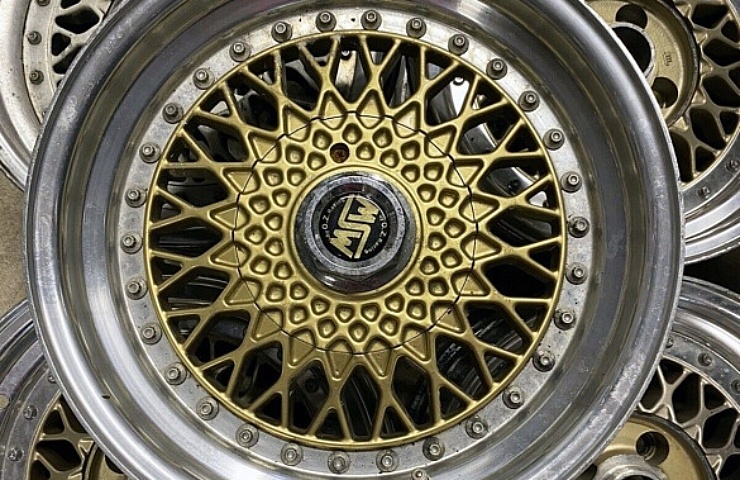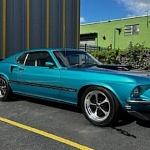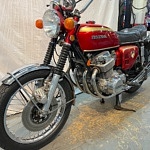Contents
Traditional automotive wheels use stamped steel construction. While steel wheels are relatively inexpensive and robust, they’re heavy and offer zero visual appeal. What alternatives should you consider?
The shift from old-school steel wheels to alloy is not just about looks. Simply put, less weight equals better performance. And bolting on the right set of aftermarket alloys is one of the fastest routes to weight reduction.
The many benefits of shaving pounds with a lighter wheel construction include:
- Improved acceleration
- Sharper steering
- More responsive handling
- No change in weight distribution
- Faster heat dissipation
- Improved fuel economy
Forged vs. Cast Alloy Wheels?
It’s not the materials per se that make alloy wheels different. It’s the method of production. With casting, a mold is filled with molten metal. As the metal cools, the wheel becomes stronger and more rigid. Cast alloy wheels are well-suited for street use. But what if you want more oomph on the street or track?
Then you’ll probably want a set of forged alloys. Forging is the process of forcing a solid billet of aluminum between the dies under extreme pressure. This creates a finished wheel that is very strong and lightweight but usually adds cost.
Are Mag Wheels Made of Magnesium?
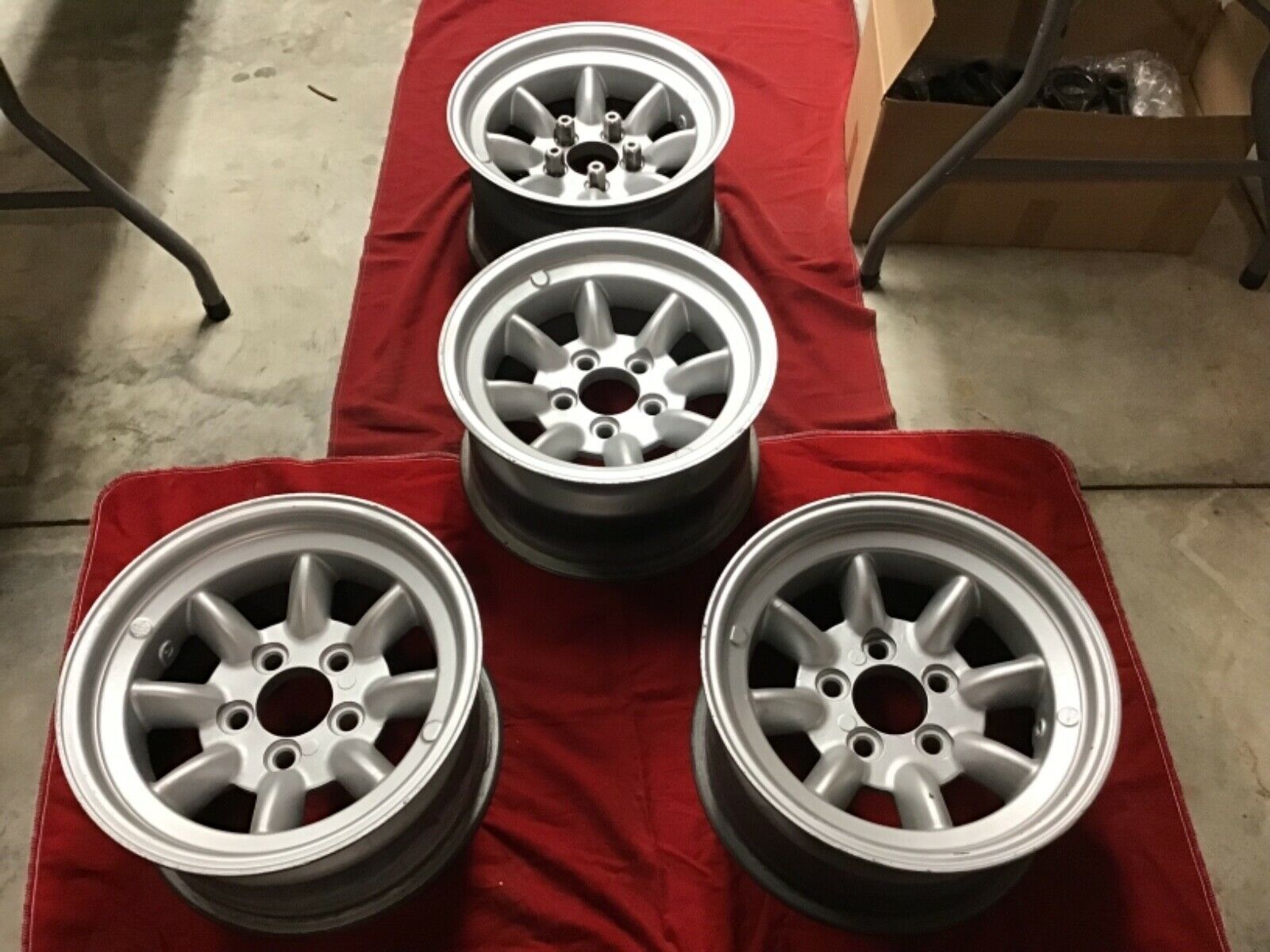
Minilite still offers magnesium wheels. These are a vintage set available on eBay.
American Racing Equipment first offered a street-version of its legendary Torq-Thrust magnesium wheel in 1963. A less expensive but heavier aluminum version of the Torq-Thrust soon followed. The materials changed from magnesium to aluminum, but enthusiasts often use the term “mag wheels” for any lightweight racing wheels.
Nearly all of today’s aftermarket wheels are cast or forged using aluminum alloy. Minilite is a notable exception. Minilite claims that its magnesium wheels are 33-percent lighter than comparable aluminum alloy wheels.
Mag wheels (the ones actually made from magnesium) are incredibly light, but can corrode quickly.
What About Carbon Fiber Wheels?
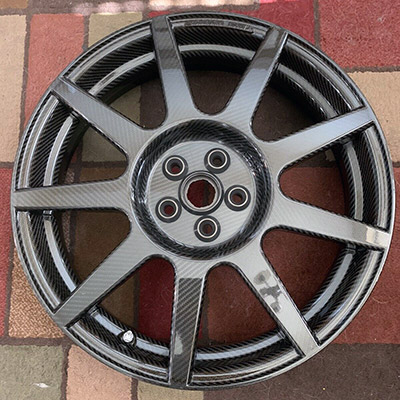
A spare carbon fiber wheel from the Ford Mustang GT350R without the black finish.
While carbon fiber wheels are commonplace among the high-end bicycle crowd these days, they are still a rarity among production automobiles.
The 2016 Ford Mustang Shelby GT350R was the first domestic production car fitted with carbon fiber wheels from the factory. At a scant 18 pounds apiece, the GT350R’s 19-by-11-inch carbon fiber front wheels weigh about 15 pounds less than comparable alloy wheels.
Everyone loves to see exposed carbon fiber in clear epoxy. Unfortunately, the GT350R hides the magic under a gloss black finish for protection against the elements. The inner surfaces of the GT350R’s carbon fiber wheels are treated with a NASA-grade ceramic coating to minimize the effect of the GT350R’s scorching hot brake rotors. Carbon Revolution builds the GT350R’s carbon fiber wheels.
Other than the GT35R, only supercars from the likes of Ferrari and Porsche will come with carbon fiber wheels.
Can You Use Racing Wheels on Your Ride?
If you’d like to emulate professional racers, consider the wheels used in various series cars.
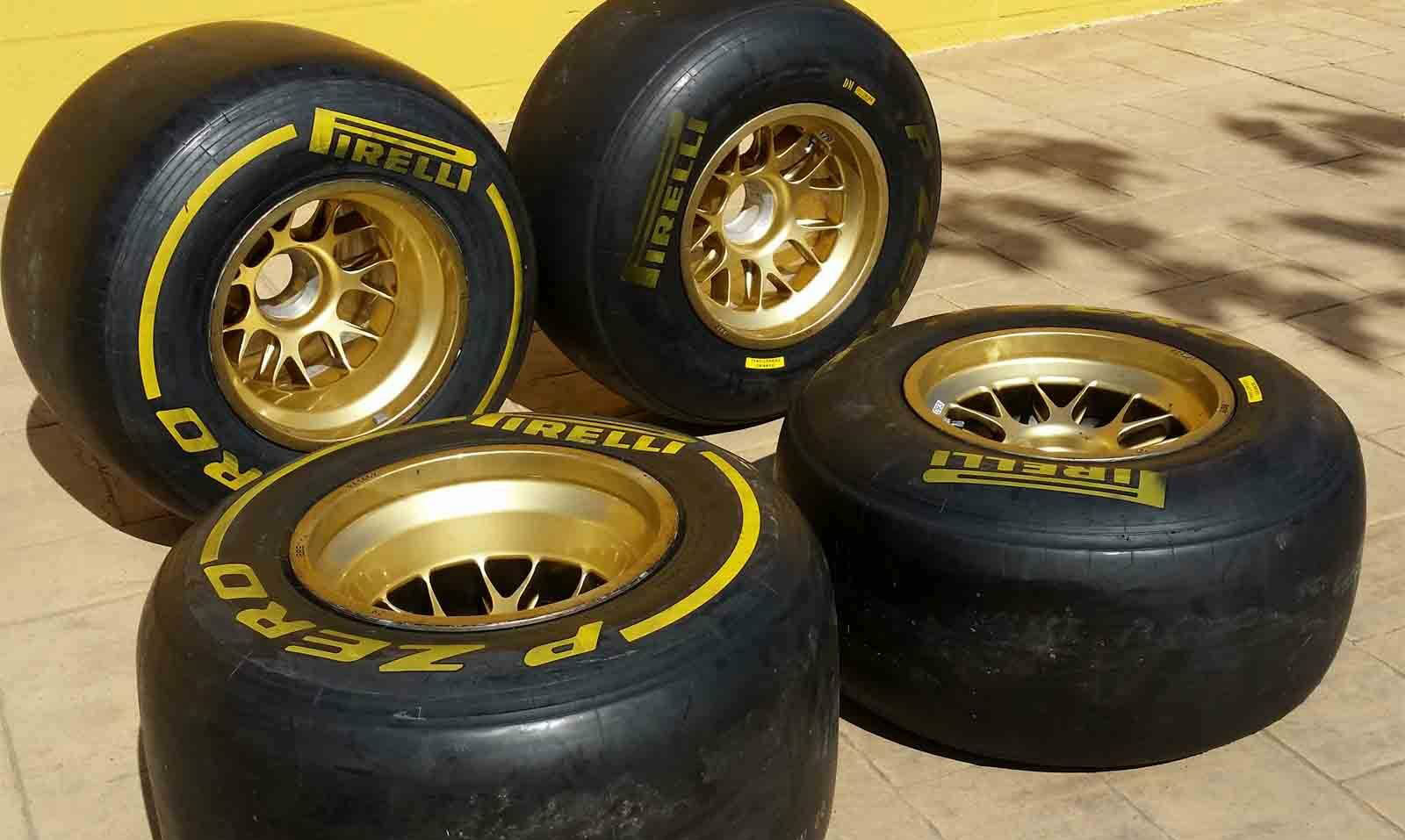
BBS F1 wheels can be found on eBay.
NASCAR used a conventional 15-inch five-lug steel wheel through the 2020 season. The Cup Series switched to an 18-inch single-nut aluminum alloy wheel with the 2021 NextGen car. BBS supplies the NexGen wheels to the NASCAR teams.
IndyCar uses 15-inch aluminum-alloy wheels, with 10-inch wide wheels up front and 14-inch wheels in back. The wheels weigh 13.48 pounds and 14.7 pounds, respectively. BBS and O.Z. Racing supply the wheels for IndyCar.
NHRA Top Fuel dragsters endure an insane amount of stress. With over 11,000 horsepower on tap, 16-by-16 Weld Racing Delta-1 aluminum TF beadlocks are the wheel of choice. NHRA Pro Stock, Pro Mod, and Funny Car use beadlock wheels, as well. With a beadlock wheel, the tire pressure pushes the bead of the tire against the inside of the wheel rim, so the tire and wheel rotate together.
Formula One will switch to 18-inch forged alloy wheels for the 2021 season after running on 13-inch wheels for more than two decades. F1 wheel manufacturers include BBS, Enkei, and O.Z. Racing.
Read more about the coolest aftermarket wheel brands and looks.

